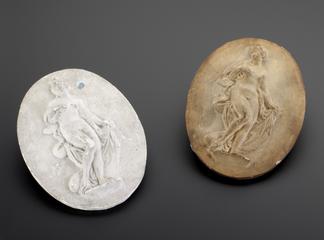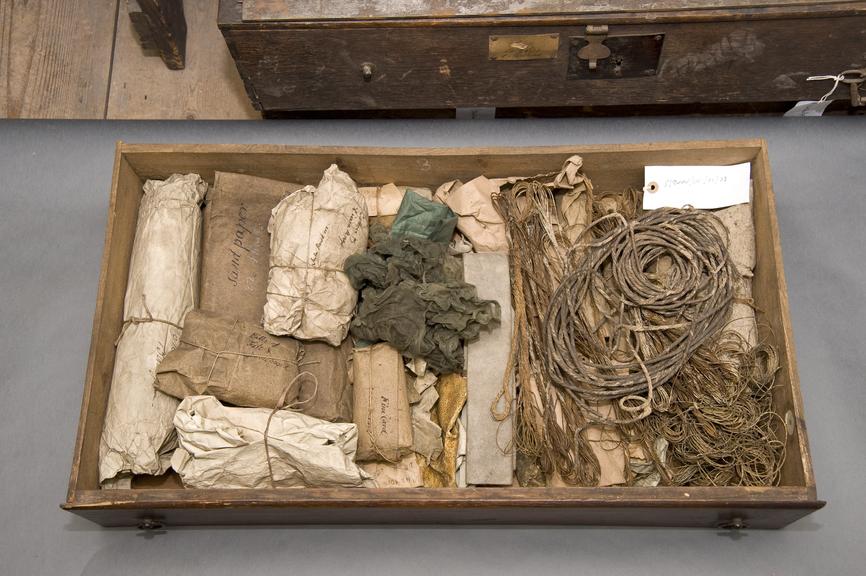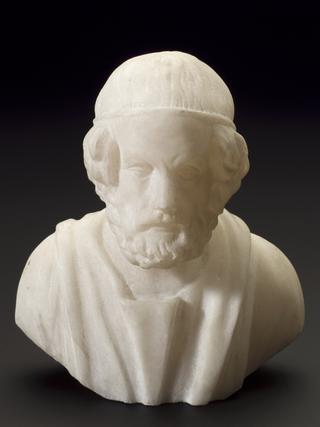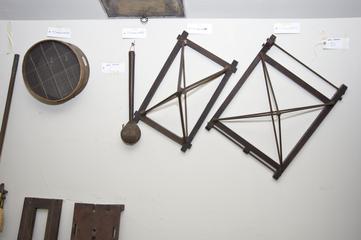
Piece wax tube with mouth piece
- Made:
- 1790-1819

1 Piece wax tube with mouth piece
This item is part of the contents of the workshop that Scottish engineer James Watt developed at his home, Heathfield, at Handsworth, Birmingham, from c.1795 through to his death in 1819. Although Watt is best known for his work on the steam engine, his workshop contains a wide variety of objects from many different projects, from chemistry to sculpture-copying.
The description of the item was written by Edward Collins, the land agent responsible for Heathfield when the workshop was given to the Science Museum in 1924. Collins could not always identify what he was looking at, but always described what he saw clearly. This has allowed his descriptions to form the basis of subsequent research.
A short piece of tube, and another similar piece but with a flared end, both flattened. The surface is of a dark reddish brown covered with cracks, the edges a brighter red. The material is now hard and inelastic, but may perhaps be natural latex rubber. Raw latex rubber, and some products manufactured using it, were introduced into Europe during Watt's life. The use of a piece of rubber as an eraser is said to have become common in architects' offices late in the eighteenth century, and it may be significant that at the same time Watt was conducting a drawing office for his practice in steam engineering. Whatever the material, the presence of tubing, and the possibility that item D3.3 associated with it may have been a bladder, may be significant in relation to the fact that Watt’s son Gregory suffered from tuberculosis and that, in the search for a cure, Watt became associated with Thomas Beddoes and his Pneumatic Institution at Bristol.
Details
- Category:
- James Watt's Garret Workshop
- Object Number:
- 1924-792/206/8
- type:
- tube
- credit:
- Major J.M. Gibson-Watt



